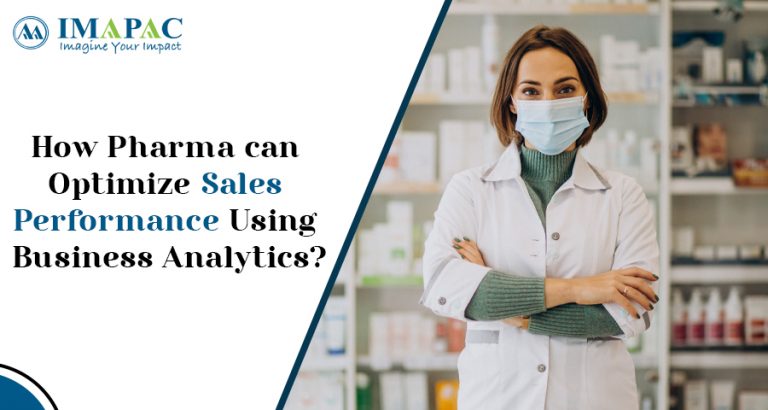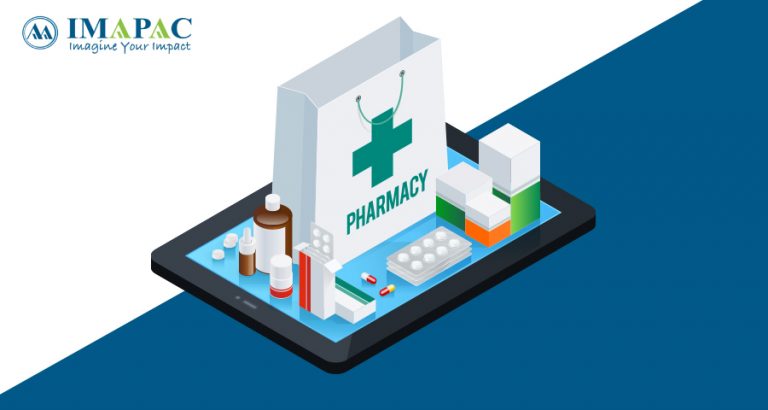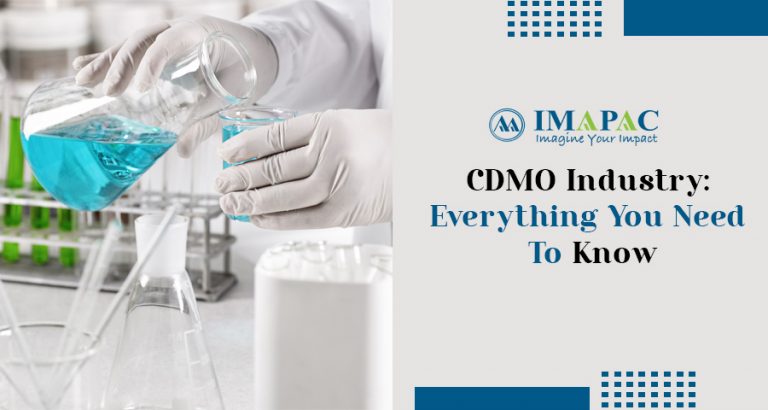How Pharma can Optimize Sales Performance Using Business Analytics?
Pharma companies are scrambling to emerge on top and boost their performance without increasing their total cost of operations in today’s dynamic and rapidly changing competitive battleground. With the rise of innovative technologies such as digital marketing intelligence, robotic process automation, and big data analytics in the pharmaceutical industry, pharma companies must innovate quickly in order to gain a competitive advantage and capitalize on market opportunities.
Drug design and manufacturing typically take several years, with lengthy clinical processes and high costs. However, the industry has recently taken off.
The global pharmaceutical industry is expected to be worth $1170 billion by 2021, with a 5.8 percent annual growth rate from 2017. Americans alone spent $329 billion on prescription drugs in 2016 and are expected to account for 25% of the global pharma market.
The Asia Pacific region is experiencing rapid growth, with pharma sales expected to increase by 8.4 percent in 2021, with India and China expected to grow by 10 percent.
Pharma data analytics and its supporting infrastructures—advances in cloud computing, machine learning, and so on—promise several cutting-edge innovations to deliver insights into pharma in order to formulate a fact-based strategy in the global market using big data analytics for the pharma industry.
Pharma data analytics provides several advantages to pharmaceutical companies, including the ability to conduct in-depth competitor analysis and monitoring, as well as to improve internal processes with data-backed insights.
According to McKinsey, the potential impact of predictive modeling in discovering and optimizing new blockbuster therapies ranges from 15 to 30 percent of EBITDA over five years, increasing to 45 to 70 percent over a decade.
Big Data Analytics In Pharma: Key Challenges
Pharma companies must be innovators and early adopters of technology in order to reap the benefits of pharma data analytics. There are significant challenges that must be overcome before pharmaceutical companies can begin to reap the benefits of pharmaceutical data analytics.
- Creating cross-functional insights by breaking down process silos and integrating siloed data.
- Creating the infrastructure needed to transform big data into smart data.
- Obtaining and utilizing unstructured clinical and medication distribution data.
- Using clinical trial data to generate projections and reports in accordance with investor funding requirements.
- Defining data privacy and customer engagement rules.
Proving the ROI on initiatives is proving to be a significant challenge for many businesses. Many pharmaceutical companies are having difficulty determining the impact and ROI of their business intelligence marketing initiatives.
Everyone agrees on the concept, its scope, and the benefits of pharma business intelligence (BI). However, not everyone is on board with a clear plan for getting there.
-
Accelerate Drug Discovery And Development
The cost of bringing a new drug to market is skyrocketing, and with patents for blockbuster drugs expiring, the pharmaceutical industry is looking to speed up the process.
Pharmaceutical analytics can help firms make more intelligent decisions by sifting through vast datasets of scientific publications, academic research papers, and control group data and by running predictive algorithms through these vast swaths of data. Drug discovery innovation will be a key strategy for improving financial performance.
-
Increase The Efficacy Of Clinical Trials
By identifying and analyzing various data points, such as participants’ demographic and historical data, remote patient monitoring data, and past clinical trial events data, big data analytics in pharma can help pharmaceutical businesses reduce costs and speed up clinical trials.
Pharma companies can use pharmaceutical analytics to speed up disease diagnosis and design more efficient control groups and clinical trials by optimizing the entire process and identifying test sites with high patient availability.
-
Personalize & Create Targeted Medications
Every person has a unique genomic makeup, and medicine should ideally be personalized for everyone. However, using current biology and technology to handle complex data and make effective decisions is difficult.
Big data analytics in the pharmaceutical industry can solve this problem by combing through data from genomic sequencing, medical sensor data from patients (a device that can be worn to track physical changes in an individual during treatment), and electronic medical records.
Pharma companies can spot patterns to help create a more effective and personalized medication for their patients by effectively utilizing big data technologies to sift through unstructured genomic data.
-
Reduce Cost And Increase Drug Utilization
With increasing pressure on pharmacy operating margins, it is critical to improve overall process efficiency. By using pharmaceutical analytics, pharmaceutical businesses can make smarter decisions to increase revenue and reduce costs by granularly analyzing key metrics such as average ingredient cost per prescription, rebate as a percentage of total drug spending, and drug utilization review savings per member per year.
-
Social & Search Engine Listening To Capture Data Of Interest
Pharma companies can tap into what conversations people are having online about, say, their product launch and similarly about their competitors by scraping through internet data.
This will assist them in better understanding how their product is being received. By capturing additional data, which may include safety-related information from internet conversations, the information can be quickly sent to the appropriate team to address in a timely manner, ensuring that the company’s reputation is not harmed.
-
Drive Effective Sales & Marketing Operations
By collecting key data points, pharma business intelligence can assist in identifying new markets and analyzing the effectiveness of various marketing channels in order to prioritize efforts and gain a competitive advantage. It will aid in understanding sales rep performance, allowing for better and faster decisions.
This will assist you in making sound capital and resource allocation decisions. Pharmaceutical companies are increasing the effectiveness of their sales and marketing strategies by analyzing patient trends to identify new markets, implementing innovative technology, and using big data analytics in the pharmaceutical industry.
-
Streamline Compliance
With stringent government regulations becoming more stringent by the day, failing to follow the rules can result in civil and criminal lawsuits that can not only harm the drug maker’s reputation but also result in large payouts to settle the charges.
Big data analytics in pharma can help quickly uncover insights to streamline governance decisions and highlight gaps in the safety of current drugs in a complex and dynamic environment in which drugmakers operate in multiple geographies and complex legal environments.
On-the-floor digital operations assistance can help human workers manage their daily tasks and, if necessary, raise alerts to reduce the risk of compliance failures.
-
Improving Operations & Employee Training
Pharmaceutical companies can significantly reduce their costs by using pharmaceutical analytics and data insights to improve their existing operations and processes. Pharmaceutical companies can use advanced analytics to understand how machine settings, operator training levels, and raw material inputs will affect output quality.
It will help pharmaceutical companies make decisions to optimize and improve the entire process. Using predictive analytics and big data analytics in pharma, pharma businesses can forecast risks such as quality issues, machine failures, or significant changes in demand.
How Can Pharma Companies Ensure Success With Data Analytics?
To reap the greatest benefits, a company-wide analytics mobilization strategy is required. For pharma companies, advanced analytics provides a significant and real advantage in gathering data and building models for turning insights into impact at scale. But first, they must decide where to invest their time, money, and effort.
Today, there is a vast scope that remains unfulfilled. This is for pharma companies to adopt and develop winning data-driven strategies. Pharmaceutical analytics has applications in every function.
Break down data and process silos, which can spell the end of pharma business marketing intelligence services and big data analytics. The key to success will be implementing agile use-case sprints with streamlined governance and implementing change management initiatives. Having action driven by leadership will aid in effectively breaking down biases and prejudiced notions about the scope and role of analytics and dealing with skeptics.
Find the right use cases, start small, and gain supporters for your process. Obtain executive support for your project. Demonstrate your ROI early on by selecting the appropriate use case to target first. Over time, you will find it easier to gather more supporters for your initiative and convert doubters into believers.
Imapac can assist you in implementing the appropriate solutions to ensure success with analytics. Our experts understand the common issues that pharma companies face and have implemented appropriate analytics systems to help you derive value from your data and achieve success in pharma data analytics use cases. Please leave a comment below, and we will respond.







